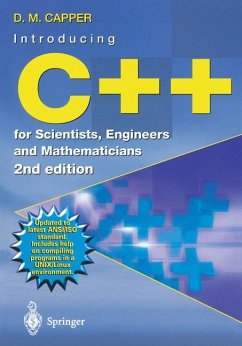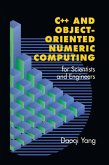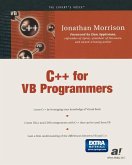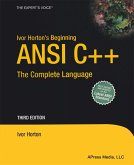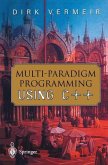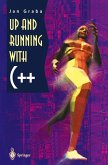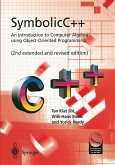Since the first edition of C++ for Scientists, Engineers and Mathematicians, many things have changed. Perhaps the most important is that the ANSI C++ Standard was approved in 1998. The first edition of this book was incompatible with some parts of the Standard and every effort has been made to rectify this. The facilities offered by the C++ language have also grown enormously since the first edition. It is not just the language itself that has grown, but the ANSI Standard also defines an extensive range of library facilities. I have also made two changes in emphasis since the first edition. Firstly, since there is so much important material to cover, some less important features of the language have been removed. The second change is to try to illustrate the language by means of complete programs, rather than code fragments. Hopefully, this will give you more confidence in applying new techniques. Finally, although C++ is a bigger language than it was, it is even more fun to use.
Hinweis: Dieser Artikel kann nur an eine deutsche Lieferadresse ausgeliefert werden.
Hinweis: Dieser Artikel kann nur an eine deutsche Lieferadresse ausgeliefert werden.
From the reviews of the first edition: "The author of this book has done an outstanding job in introducing/explaining the aspects of C++...I highly recommend this book to students or professionals in engineering who are interested in migrating to C++ from Fortran." Reviewer: A reader from Madison Heights, MI United States "This is not only the best introductory C++ book for scientists and engineers, but it is one of the best C++ books in general that I have seen." Reviewer: James Bond from New Jersey, USA "I found this book to be an excellent introduction to C++ for use in scientific computing, and it remains the best Ie seen. With it I was able to use my existing programming experience in Fortran to write useful C++ very rapidly, although it should prove to be an excellent text for people with no pervious programming experience." Reviewer: Dave Strickland from Johns Hopkins University, Baltimore

